2022 Attendee Books
Books
Browse books written by conference attendees. All featured books contain links to black-owned independent bookstores when available.

A Bonded Friendship

A Bonded Friendship
Gretchel Hathaway
This is the story of a truly epic friendship between two men who, in different ways, were giants of courage and commitment. Moses Viney escaped the bonds of slavery and was embraced, literally and figuratively, by the long-serving president of Union College, Eliphalet Nott. As this fascinating account (more history than fiction) makes clear, both men supported one another through crisis, physical pain, and personal loss. Their “bonded friendship” continues to be celebrated in New York and particularly in the Union College community as an enduring example of how differences in race, social background, and professional status fade to the vanishing point in the presence of mutual trust, caring, and respect.
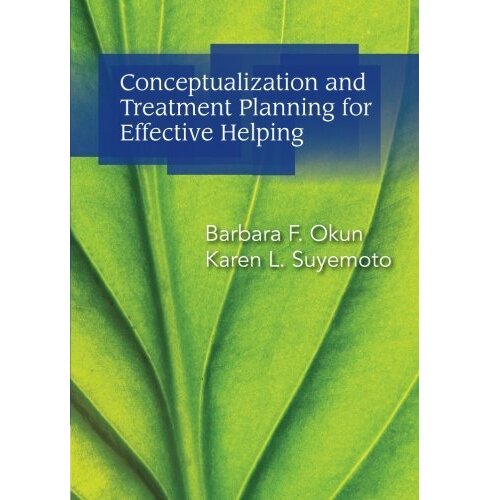
Conceptualization and Treatment Planning for Effective Helping

Conceptualization and Treatment Planning for Effective Helping
Karen Suyemoto & Barbara F. Okun
Okun and Suyemoto’s book addresses theory and skills for continuing beyond the first few sessions with a client, thus helping students take the “next step” from a basic understanding of interviewing skills to a conceptualization of the counseling process. CONCEPTUALIZATION AND TREATMENT PLANNING FOR EFFECTIVE HELPING teaches students how to integrate the many pieces of the helping process (e.g., theoretical orientation, the person of the therapist, the person of the client, the contexts that affect the clients, the therapy relationship, the context of the therapy, the skills and resources available, etc.) into a conceptualization that will foster efficacy in creating positive change. CONCEPTUALIZATION AND TREATMENT PLANNING FOR EFFECTIVE HELPING teaches students how to integrate the many pieces of the helping process (e.g., theoretical orientation, the person of the therapist, the person of the client, the contexts that affect the clients, the therapy relationship, the context of the therapy, the skills and resources available, etc.) into a conceptualization that will foster efficacy in creating positive change.
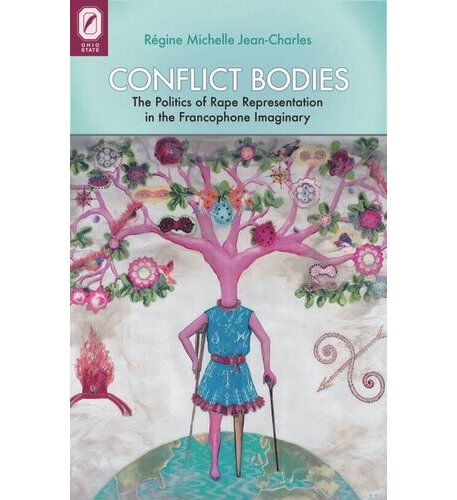
Conflict Bodies: The Politics of Rape Representation in the Francophone Imaginary

Conflict Bodies: The Politics of Rape Representation in the Francophone Imaginary
Régine Michelle Jean-Charles
Conflict Bodies: The Politics of Rape Representation in the Francophone Imaginary explores the relationship between rape and narratives of violence in francophone literature and culture. The book offers ways to account for the raped bodies beneath the conflicts of slavery, genocide, dictatorship, natural disasters and war―and to examine why doing so is necessary. Through a feminist analysis of the rhetoric and representation of rape in francophone African and Caribbean cultural production, Conflict Bodies examines theoretical, visual, and literary texts that challenge the dominant views of postcolonial violence. Using an interdisciplinary and comparative framework to consider different contexts―Haiti, Guadeloupe, Rwanda, and Democratic Republic of the Congo―Régine Michelle Jean-Charles illuminates how analyzing survivors’ subjectivities, stories, and embodied experiences provides a nuanced understanding of what is at stake in rape representation. Referencing theories from francophone literary studies, transnational black feminisms, and rape cultural criticism to analyze novels, film, photography, drama, and documentaries, Jean-Charles argues that in today’s global climate―where one in three women worldwide has been raped, rape is being used as a tool of war, and rape myths circulate with vehemence―traditional “scripts of violence” that fail to account for sexual violence demand refusal, re-thinking, and re-imagining.

Creating Ourselves: African Americans and Hispanic Americans on Popular Culture and Religious Expression

Creating Ourselves: African Americans and Hispanic Americans on Popular Culture and Religious Expression
Sheila Winborne
Creating Ourselves is a unique effort to lay the cultural and theological groundwork for cross-cultural collaboration between the African and Latino/a American communities. In the introduction, the editors contend that given overlapping histories and interests of the two communities, they should work together to challenge social injustices. Acknowledging that dialogue is a necessary precursor to collaboration, they maintain that African and Latino/a Americans need to cultivate the habit of engaging “the other” in substantive conversation. Toward that end, they have brought together theologians and scholars of religion from both communities. The contributors offer broadly comparative exchanges about the religious and theological significance of various forms of African American and Latino/a popular culture, including representations of the body, literature, music, television, visual arts, and cooking.
Corresponding to a particular form of popular culture, each section features two essays, one by an African American scholar and one by a Latino/a scholar, as well as a short response by each scholar to the other’s essay. The essays and responses are lively, varied, and often personal. One contributor puts forth a “brown” theology of hip hop that celebrates hybridity, contradiction, and cultural miscegenation. Another analyzes the content of the message transmitted by African American evangelical preachers who have become popular sensations through television broadcasts, video distribution, and Internet promotions. The other essays include a theological reading of the Latina body, a consideration of the “authenticity” of representations of Jesus as white, a theological account of the popularity of telenovelas, and a reading of African American ideas of paradise in one of Toni Morrison’s novels. Creating Ourselves helps to make popular culture available as a resource for theology and religious studies and for facilitating meaningful discussions across racial and ethnic boundaries.
Contributors. Teresa Delgado, James H. Evans Jr., Joseph De León, Cheryl Kirk-Duggan, Angel F. Méndez Montoya, Alexander Nava, Anthony B. Pinn, Mayra Rivera, Suzanne E. Hoeferkamp Segovia, Benjamín Valentín, Jonathan L. Walton, Traci C. West, Nancy Lynne Westfield, Sheila F. Winborne

Creole Testimonies: Slave Narratives from the British West Indies, 1709-1838

Creole Testimonies: Slave Narratives from the British West Indies, 1709-1838
Nicole Aljoe
Analyses the relationships among the socio-historical contexts, generic forms, and rhetorical strategies of British West Indian slave narratives. Grounded by the syncretic theories of creolisation and testimonio it breaks new ground by reading these dictated and fragmentary narratives on their own terms as examples of ‘creole testimony’.
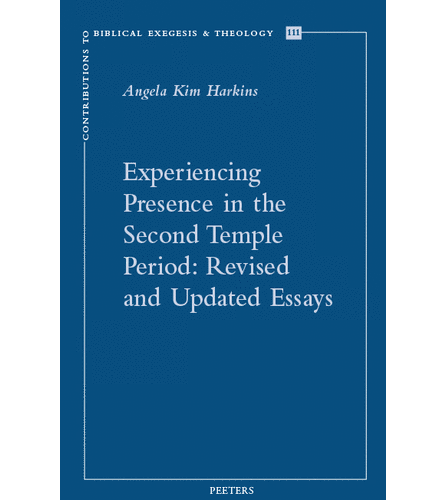
Experiencing Presence in the Second Temple Period

Experiencing Presence in the Second Temple Period
Angela Kim Harkins
This volume brings together twelve essays by Angela Kim Harkins that use integrative and interdisciplinary approaches to contribute new insights to the understanding of religious experience in ancient Judaism and Christianity. Building on the text-centered work that characterizes much of Second Temple studies, Harkins seeks to reintegrate ancient Jewish and Christian texts with various aspects of the flesh-and-blood experience of religion by using performance-based methods, ritual studies, integrative cognitive science approaches, and emotion studies. This volume aims to overcome the common mind-body dualism that dominates the study of ancient texts by offering ways to imagine the integrative phenomenological experience of these texts for ancient peoples.
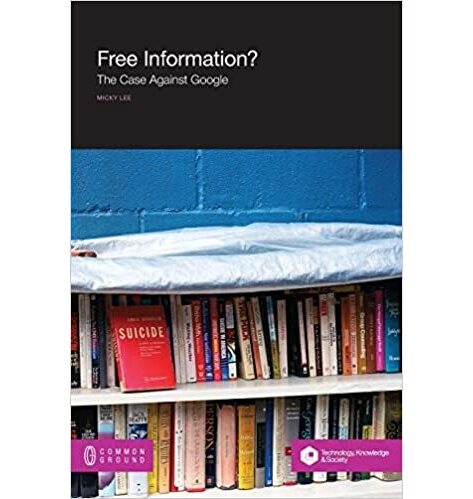
Free Information? the Case Against Google

Free Information? the Case Against Google
Micky Lee
This book is written to respond to the often heard but erroneous statement: “You can find everything online now!” Internet users assume that information is free. They do not question if free (in the sense of gratis) information fetters the freedom (in the sense of liber) of information. Using Google as a case study and the political economy of communication as an approach, this book aims to examine Google as a corporation in a capitalist system. The book illustrates how Google is both a product and a force in a specific political economic system. The ultimate aim of the book is to empower readers to realise that Internet users have the power to free information.

Gender, Race, and Sudan's Exile Politics Do We All Belong to This Country?

Gender, Race, and Sudan's Exile Politics Do We All Belong to This Country?
Nada Mustafa Ali
Gender, Race, and Sudan’s Exile Politics examines the gendered and racialized discourses and practices of the Sudanese opposition in exile through the opposition movements of the 1990s and early 2000s, and discusses the history through which these discourses evolved.
The military coup that brought the National Islamic Front (NIF)—now National Congress Party (NCP)— to power in 1989 not only forced most political parties, trade unions, and activists in Sudan into either exile politics or underground activism; it also urged many of Sudan’s political forces and activists to rethink the meaning of belonging and of the “Old” Sudan. In the mid-1990s, this involved a rethinking of the relationship between religion and politics, acknowledging Sudan’s diversity, acknowledging the need to restructure Sudan’s economy and politics to ensure equal access and participation for the historically marginalized, and committing to self-determination for the people of South Sudan. The concept of the New Sudan broadly captured this rethinking.
This book interrogates the relationship between women’s organizations and activisms in exile on one hand, and nationalist, transformative, and other political movements and processes on the other. It further discuses transnational coalition building across difference, including racial difference, between women’s organization seeking to transform gender relations in Sudan and South Sudan.

Gospel of Regicide

Gospel of Regicide
Eunsong Kim
“In Gospel of Regicide, Eunsong Kim develops a thrilling method for unwriting lyric even as she reimagines it, creating a socially engaged poetry of and for our time. Anticapitalist, feminist and anti-racist yet critical of non-intersectional understandings of identity and selfhood, she is unafraid of drawing the sacred from the pedestrian, and unbeholden to whiteness as foundation. These poems, mutable in form and style, yet cohesive in their vision, suggest a complex and different order allowing us to “complete the story.” Kim kills the king, and blesses us with a superlative collection as a result.”
-John Keene

Have You Been Feeling Blue These Days

Have You Been Feeling Blue These Days
Translated by Eunsong Kim
Kim Eon Hee was born in 1953 in Jinju, Gyeongsang Province. She is the author of five volumes of poetry. Her first collection Modern Ars Poetica was published in 1989. Followed by, Trunk, The Girl who Sleeps Under a Withering Cherry Tree, Unexpected Response, and her latest from 2016 The Man I Miss. First published in 2011, Have You Been Feeling Blue These Days?, is her fourth poetry collection, and the first of her books’ to be translated into English.
Sung Gi Kim is an award-winning journalist and photographer who writes about Asian affairs with a focus on the Korean Peninsula. He is a Seoul correspondent and producer for Thomson Reuters. He was part of a team that produced a documentary on South Korea’s education system, which won silver at the 2016 New York Festivals. His work has been published in The Sunday Times, Australian Broadcasting Corporation, Nikkei Asian Review and United Press International.
Eunsong Kim is an Assistant Professor in the Department of English at Northeastern University. Her book project in progress, The Politics of Collecting: Property, Race & Aesthetic Formations considers how legal conceptions of racialized property become foundational to avant-garde and modern understandings of innovation in the arts. She co-founded the arts forum, contemptorary, a platform supported by the Andy Warhol Art Writers Grant Program. Her essays have appeared in: Lateral: Journal of the Cultural Studies Association, Journal of Critical Library and Information Studies, and in the book anthologies, Poetics of Social Engagement and Reading Modernism with Machines. Her poetry has appeared in the Brooklyn Magazine, The Iowa Review, Minnesota Review, and West Branch amongst others. Her first book of poetry, gospel of regicide, was published by Noemi Press in 2017.
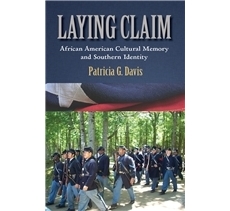
Laying Claim: African American Cultural Memory and Southern Identity” (University of Alabama Press, 2016)

Laying Claim: African American Cultural Memory and Southern Identity” (University of Alabama Press, 2016)
Patricia Davis
In Laying Claim: African American Cultural Memory and Southern Identity, Patricia Davis identifies the Civil War as the central narrative around which official depictions of southern culture have been defined. Because that narrative largely excluded African American points of view, the resulting southern identity was monolithically white. Davis traces how the increasing participation of black public voices in the realms of Civil War memory—battlefields, museums, online communities—has dispelled the mirage of “southernness” as a stolid cairn of white culture and has begun to create a more fluid sense of southernness that welcomes contributions by all of the region’s peoples.
Laying Claim offers insightful and penetrating examinations of African American participation in Civil War reenactments; the role of black history museums in enriching representations of the Civil War era with more varied interpretations; and the internet as a forum within which participants exchange and create historical narratives that offer alternatives to unquestioned and dominant public memories. From this evolving cultural landscape, Davis demonstrates how simplistic caricatures of African American experiences are giving way to more authentic, expansive, and inclusive interpretations of southernness.
As a case-study and example of change, Davis cites the evolution of depictions of life at Thomas Jefferson’s Monticello. Where visitors to the site once encountered narratives that repeated the stylized myth of Monticello as a genteel idyll, modern accounts of Jefferson’s day offer a holistic, inclusive, and increasingly honest view of Monticello as the residents on every rung of the social ladder experienced it.
Contemporary violence and attacks about or inspired by the causes, outcomes, and symbols of the Civil War, even one hundred and fifty years after its end, add urgency to Davis’s argument that the control and creation of public memories of that war is an issue of concern not only to scholars but all Americans. Her hopeful examination of African American participation in public memory illuminates paths by which this enduring ideological impasse may find resolutions.
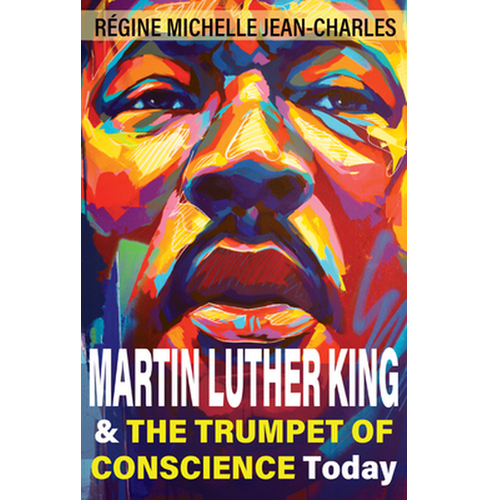
Martin Luther King and the Trumpet of Conscience Today

Martin Luther King and the Trumpet of Conscience Today
Régine Michelle Jean-Charles
Martin Luther King and The Trumpet of Conscience Today wrestles with the parts of King’s vision that have historically been the most uncomfortable for white Americans. The lectures that comprise “The Trumpet of Conscience” are a powerful critique of the triple American evils of racism, the scourge of poverty, and the horrors of war. In light of today’s urgent social issues, Régine Michelle Jean-Charles offers a faith-based, justice-centered response to economic inequality, the refugee crisis, Black Lives Matter, and #MeToo, while asking questions similar to those King posed in his speeches: “If I do not stop to help families separated at the border what will happen to them?”; “If I do not stop to help those suffering as a result of income inequality, what will happen to them?” “If I do not stop to help survivors of rape and sexual abuse what will happen to them?”

Psychotherapy with Women Exploring Diverse Contexts and Identities

Psychotherapy with Women Exploring Diverse Contexts and Identities
Karen Suyemoto
The contemporary successor to Marsha Pravder Mirkin’s acclaimed Women in Context, this eminently practical clinical resource and text provides insights and interventions that have emerged out of decades of work on the psychology of women. All-new chapters from leading practitioners guide therapists to understand how gender, race, ethnicity, sexual orientation, class, immigration status, religion, and other factors shape the experiences and identities of diverse women, and how to intervene effectively in the multiple contexts of clients’ lives. Filled with vivid case material, the volume is uniquely structured to address family and relationship issues; work issues and career development; and health, spirituality, and self-care.

Reading with an "I" to the Heavens: Looking at the Qumran Hodayot Through the Lens of Visionary Traditions

Reading with an "I" to the Heavens: Looking at the Qumran Hodayot Through the Lens of Visionary Traditions
Angela Kim Harkins
This book examines the collection of prayers known as the Qumran Hodayot (= Thanksgiving Hymns) in light of ancient visionary traditions, new developments in neuropsychology, and post-structuralist understandings of the embodied subject. The thesis of this book is that the ritualized reading of reports describing visionary experiences written in the first person “I” had the potential to create within the ancient reader the subjectivity of a visionary which can then predispose him to have a religious experience. This study examines how references to the body and the strategic arousal of emotions could have functioned within a practice of performative reading to engender a religious experience of ascent. In so doing, this book offers new interdisciplinary insights into meditative ritual reading as a religious practice for transformation in antiquity.
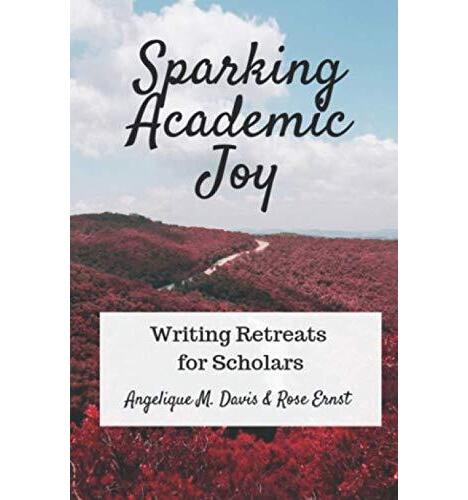
Sparking Academic Joy Book

Sparking Academic Joy Book
Angelique Davis
Have you imagined a writing retreat?
Do you want to spark more joy in your scholarly life?
This is the book for you.
With a combined 35 years of experience in the academy, Angelique M. Davis and Rose Ernst guide you through the process of selecting and planning a writing retreat tailored to your needs.
What are you waiting for?
It’s time to plan your next writing retreat!
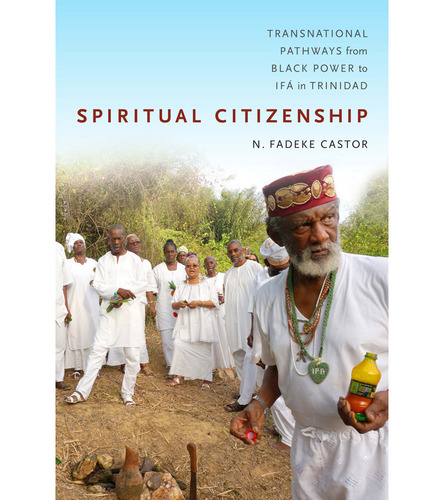
Spiritual Citizenship: Transnational Pathways from Black Power to Ifá in Trinidad

Spiritual Citizenship: Transnational Pathways from Black Power to Ifá in Trinidad
N. Fadeke Castor
In Spiritual Citizenship N. Fadeke Castor employs the titular concept to illuminate how Ifá/Orisha practices informed by Yoruba cosmology shape local, national, and transnational belonging in African diasporic communities in Trinidad and beyond. Drawing on almost two decades of fieldwork in Trinidad, Castor outlines how the political activism and social upheaval of the 1970s set the stage for African diasporic religions to enter mainstream Trinidadian society. She establishes how the postcolonial performance of Ifá/Orisha practices in Trinidad fosters a sense of belonging that invigorates its practitioners to work toward freedom, equality, and social justice. Demonstrating how spirituality is inextricable from the political project of black liberation, Castor illustrates the ways in which Ifá/Orisha beliefs and practices offer Trinidadians the means to strengthen belonging throughout the diaspora, access past generations, heal historical wounds, and envision a decolonial future.
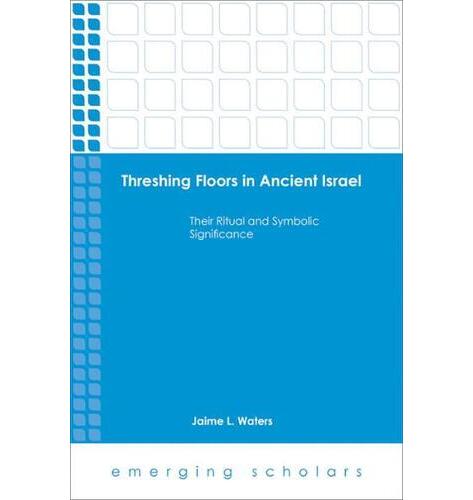
Threshing Floors In Ancient Israel: Their Ritual and Symbolic Significance

Threshing Floors In Ancient Israel: Their Ritual and Symbolic Significance
Jaime Waters
Vital to an agrarian community’s survival, threshing floors are agricultural spaces where crops are threshed and winnowed. But the Hebrew Bible rarely refers to such agricultural activities taking place at such sites. Instead, biblical narratives repeatedly depict threshing floors in ancient Israel as sites for mourning rites, divination rituals, cultic processions, and sacrifices. Kings consult prophets there; even the Solomonic temple was built on a threshing floor.
Jaime L. Waters shows that these originally agricultural sites were also considered sacred spaces connected to Yahweh, under his control, and subject to his power to bless, curse, and save and that Israel had a special ritual access to Yahweh in these powerfully symbolic sites. Waters also examines the various personnel active in the use and operation of threshing floors in these sacred functions in order to draw a more complete picture of ancient Israelite social life. An addendum discusses relevant material for comparison from Ugarit.

Women of Color in the Academy Contact
Any books we missed? Let us know so we can add them to our book collection.
